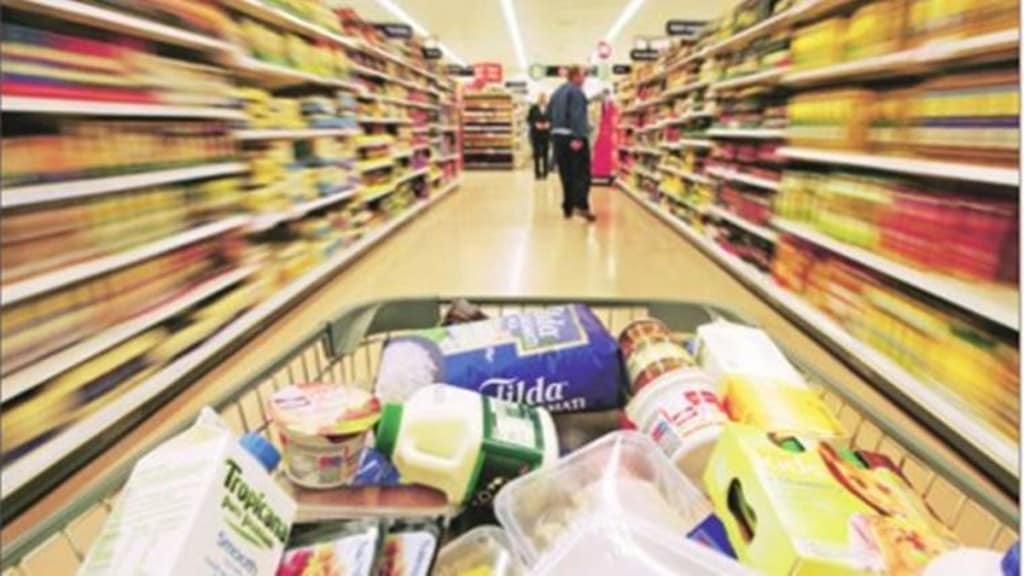In the fast-moving consumer goods (FMCG) segment, the big are only getting bigger. A study of the annual reports and financial results of some of the country’s top companies in the sector shows that they have added more brands to the Rs 1,000-crore club over the last two years than in previous years. This number is estimated at nearly 10, according to industry experts, and comes amid the shift towards branded products, led by the Covid-19 pandemic.
Consider this: The country’s largest consumer goods company, Hindustan Unilever (HUL), saw three brands cross sales of Rs 1,000 crore in FY23, according to its investor presentation for the period. From 16 brands in FY22, the company now has 19 that have sales in excess of Rs 1,000 crore. This list includes Lakme, Closeup, Pears, Kissan, Kwality Wall’s, Clinic Plus and Bru, among others.
Also read: Kotak Mahindra Bank PAT up 26%
Interestingly, HUL is not only seeing more brands get into its Rs 1,000-crore list, but the topline of some of its top brands is also growing within its portfolio.
For instance, HUL has added two brands, Lux and Ponds, to the Rs 2,000-crore club in FY23, the jump happening within a year.
In FY22, Lux and Ponds featured in the Rs 1,000-crore list of brands. Surf Excel, on the other hand, crossed a billion dollars in sales in FY23, which is the first HUL brand to hit the mark.
Tata Consumer, meanwhile, saw its retail brand Tata Starbucks cross sales of Rs 1,000 crore in FY23 even as Tata Tea, Tata Salt, Tata Sampann and Himalayan were among the top two brands in their respective categories, according to the company’s latest investor presentation.
Dabur, on the other hand, has four brands in the Rs 1,000-crore club, including Dabur Amla, Dabur Vatika, Dabur Red Paste and juice brand Real, according to its last annual report for FY22. And ITC has six FMCG brands with sales in excess of Rs 1,000 crore, company chairman & MD Sanjiv Puri said recently. According to industry experts, ITC’s Rs 1,000-crore brand list includes personal care brand Savlon, stationary brand Classmate and Yippee! Noodles. ITC’s top brands include Aashirvaad, whose annual sales are in excess of Rs 7,500 crore, and Sunfeast, whose annual topline is over Rs 4,500 crore, say analysts tracking the company.
“The larger FMCG players have consolidated their position in the market as the shift from unbranded to branded products has grown over the last two years,” says N Chandramouli, chief executive officer at Mumbai-based brand insights and consultancy firm TRA Research. “From innovation to distribution to marketing, top players are doing it all to get as many people to try out their products. The focus on premium products is also growing,” he said.
Also read: New chiefs for BoI, Bank of Baroda
At HUL’s post-results press conference last week, MD &CEO Sanjiv Mehta said premiumisation was a secular trend in the FMCG market, despite inflationary pressures hurting rural sales. “Stronger brand recall and entry into fast-growing demand spaces are some of the factors for an uptick in brand sales, especially at the premium end,” Mehta said.
Nestle India’s chairman and MD Suresh Narayanan, when announcing the company’s March quarter results last week, said consumers are looking for trustworthy products that are better in quality and nutrition. “People are looking at value for money. But there are people who are also looking for premium products,” he said.
To tap these divergent trends, Nestle has not only driven penetration of flagship brands such as Maggi into smaller towns with low-unit packs (priced at Rs 7), it has added new flavours to excite consumers at the upper end of the market. The same goes for most other categories within its portfolio.
While Nestle India does not give a brand-wise breakup of its turnover in its annual report, milk products and nutrition, which includes brands such as Nestle EveryDay and Milo, had a topline of Rs 6,816 crore in calendar year 2022 or nearly 41% of the company’s topline for the year. Prepared dishes and cooking aids, which includes Maggi, constituted 31% of turnover, at Rs 5,300 crore, for the period. Powdered and liquid beverages, which includes Nescafe, Nestea and ready-to-drink beverages, constituted 12% of annual sales, at Rs 2,018 crore. And confectionery, which includes brands such as KitKat, Milkybar and Munch, constituted nearly 16% of turnover, at Rs 2,654 crore in sales for 2022. Nestle follows a January-December accounting year.
For HUL, meanwhile, the focus on premiumisation has seen the company get into diverse categories from home care liquids to spreads and dressings, matic detergents, green tea, premium hair care and skin care products, resulting in annual revenue that has crossed Rs 10,000 crore over the last few years from these businesses, said sector experts.
In FY23, Mehta said HUL’s premium portfolio continued to grow ahead of the rest of the company’s portfolio, prompting the firm to devote more attention to it. Beauty and personal care, food and beverages as well as nutrition are likely to be in focus in FY24.

